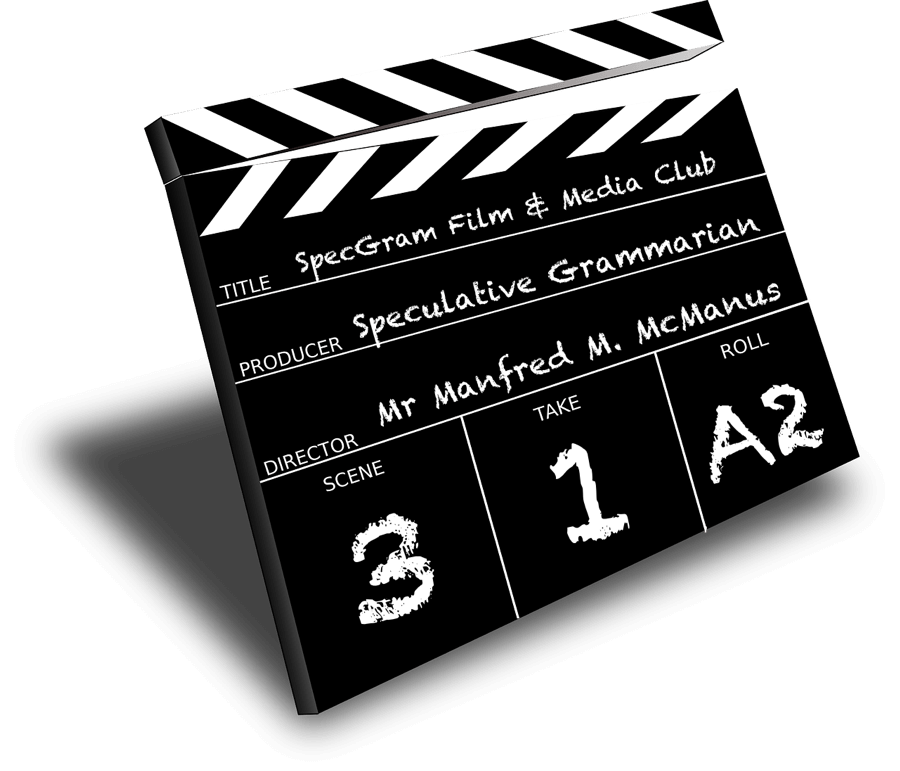SpecGram Film and Media Club
with Linguist to the Stars, Mr Manfred M. McManus

There are many iconic lines in the Star Wars trilogy (sorry, original trilogy plus prequels (sorry, original trilogy plus prequels plus sequels plus spin offs)) such as ‘Of course I know him; he’s me’ (one of only four lines in the whole of the Star Wars films’ scripts to feature a semi-colon), ‘I don’t like you either’, Chewie’s immortal ‘Ghghghhgararghghgaagh’, and of course ‘something, something, something, dark side ... something, something, something, complete’. But in a recent poll of tip-top Star Wars lines, it was the resonance of Vader’s ‘I am your father’ which was shown to have attained optimum cultural salience in the 30- to 33-year-old single male category, beating even ‘But would you like fries with that, my Lord?’, sadly cut from the cinematic run. Let’s take a closer look at this great Star Warsian line.
Its superb delivery from James Earl Jones, the raw red emotion accentuated by the white-grey background of the interior of Cloud City are of course trumped only by the startling reveal that Darth Vader was anyone’s father. And it is in this very issue of gender that the importance of the line lies. In the earlier drafts, of course, Vader was Muder, a vicious female character whose turn to the dark side was motivated by having too much ironing to do on a Sunday evening. Although some great actresses screen-tested for the role of Darthette Muder—Audrey Hepburn having indeed begun negotiations to take on the role—a last minute change of plan saw the rewriting of the character as male ... and the famous line delivered as it is known and loved.
The choice of Vader as a male role has its detractors. Dr Pansy-Janey O’Grady-Wady, Adjunct Professtrix at the University of Equality has been arguing for some years that the blatant masculinity of the line is what prompts Luke’s retort, the desperate scream of ‘Nooooooo!’ O’Grady-Wady in her recent monograph ‘The Screams of Skywalker’ makes the case that the Luke would indeed have happily ruled the galaxy as son to his own father if the latter had not insisted on continually bigging up his own maleness, per se. O’Grady-Wady suggests that the alternative ‘I am your Parentally Responsible Adult Taking a Guiding-Mentoring but at the same time Liberating-and-Autonomising Role in Emergising You from Adolescence to Adulthood’ would not have elicited the same response and that Rebel–Imperial negotiation might well have begun directly.
O’Grady-Wady’s analysis is clearly bunkum—but the fact that she’s been writing about it for over two decades and draws large audiences across the world is a testimony to the power of this great film line.
Join us next time at the SpecGram Film and Media Club for a look at adjacency pairs in The Wizard of Oz.


![[sɜɹfsʌpdydz]—Stephen Politzer-Ahles [sɜɹfsʌpdydz]—Stephen Politzer-Ahles](/images/nav/nav_right_hr.png)
